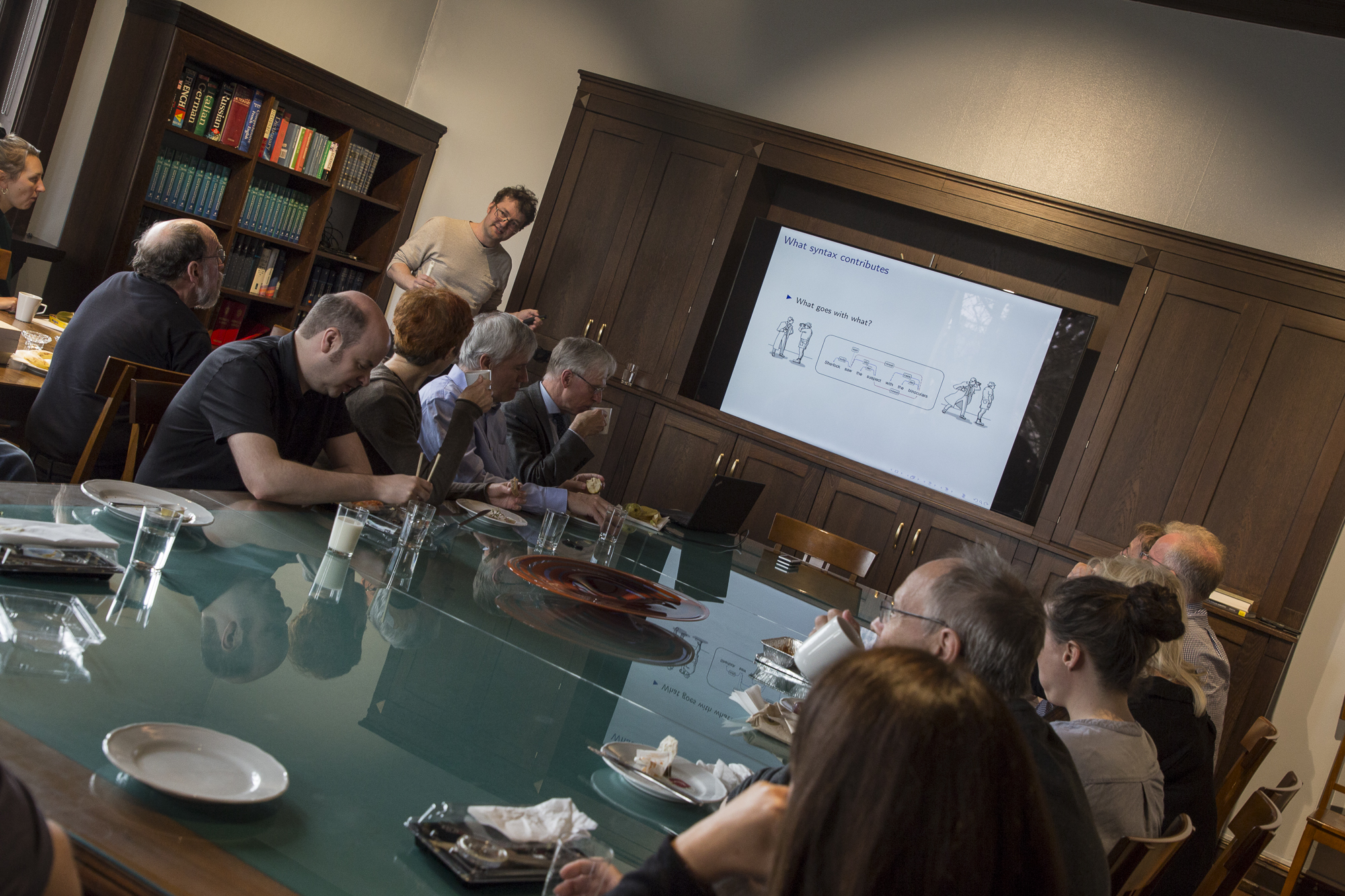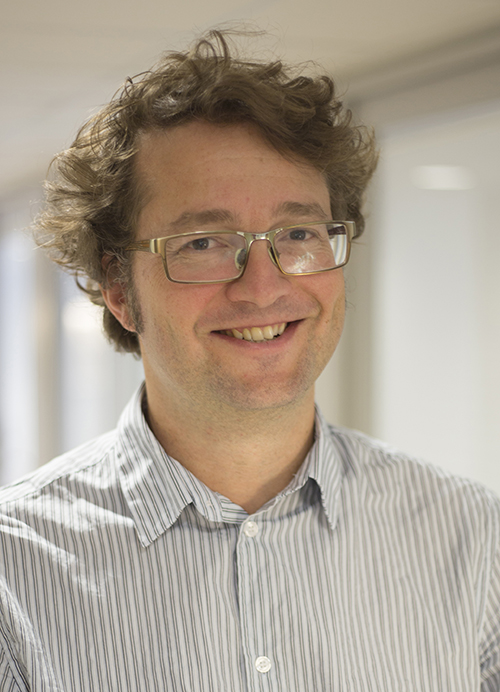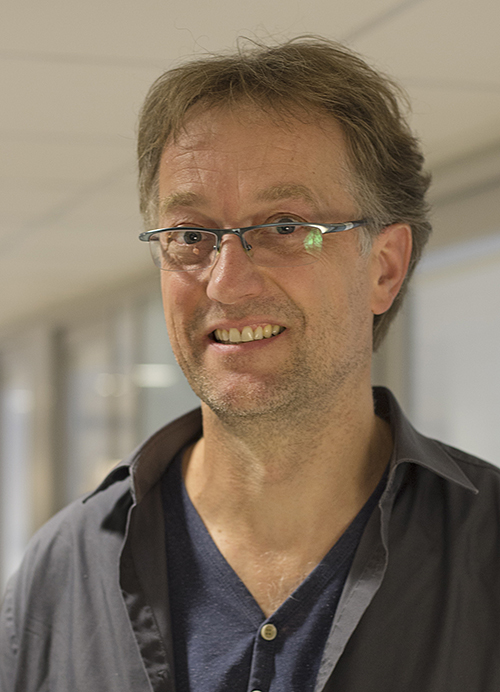Research in Review: 'SynSem: From Form to Meaning - Integrating Linguistics and Computing'

The 2017/18 academic year is coming to a close. After a year at CAS, the fellows are preparing to return to their home institutions and build on the research that began at the Centre.
We sat down with CAS project leaders Dag Trygve Truslew Haug and Stephan Oepen, professors of linguistics and informatics, respectively, at the University of Oslo (UiO), for an exit interview on the project SynSem: From Form to Meaning - Integrating Linguistics and Computing.
SynSem: From Form to Meaning - Integrating Linguistics and Computing brought together scholars from different corners of the field of formal and computational linguistics. By connecting scholars with theoretical and technological expertise, the project hoped to create new knowledge that could benefit developers, scholars, and others working with language -- for example the language technology industry.
One academic year filled with workshops and working groups later, the scholars involved in the project are working on multiple scholarly articles that build on their research at CAS.
But the project has also produced something more intangible: Professional and personal connections between scholars of different subfields, and greater understanding among those scholars about how their peers around the world approach the common challenges they all share.
How did the year at CAS play out? Read on!
Read all our coverage of SynSem: From Form to Meaning - Integrating Linguistics and Computing here.
'I think we have rattled the cages maybe a little uncomfortably this year.'
- Dan Flickinger, a senior researcher at Stanford University, on his stay at CAS.
Read the full in-depth interview here.
Q&A: Dag Trygve Truslew Haug and Stephan Oepen
- How would you summarise your year at CAS?

Dag Trygve Truslew Haug: Way too soon! I’d say we have fewer finished products that we had hoped, but there is lots going on --
Oepen: Publications, collaborations, project applications. Scientific and nonscientific outputs. We’re applying for something called a European Training Network [a research funding opportunity that is part of Horizon 2020, the EU Research and Innovation programme]. Many of the fellows participating in our project are also involved in that application.
- Why do you feel as though you have fewer finished products that you had hoped?
Haug: That’s just referring to publications. There are perhaps more projects in the works that I had anticipated. There are more balls in the air, and they haven’t all come back down yet.
Oepen: For example, an article that we in January thought we’d wrap up by the summer hasn’t been wrapped up yet. New questions keep popping up.
Haug: But there’s nothing unusual about that. This is what happens every time I start work on a new article. I think a lot of people can relate to that.
Oepen: It may be related to the fact that the scholars we worked with in January are no longer here. New people arrived, and then we started new activities. And then more new people arrived. Suddenly it became interesting to do something new together, so we created a few more working groups this semester that we didn’t originally plan for. But that’s all good.
- That’s a result in and of itself -- that people have begun collaborating in ways that you had not anticipated?

- This fall, you talked about hoping to bridge the gap between the applied and theoretical camps of computational linguistics. It sounds like you have been able to do so. Would you agree?
Haug: Many of our results have to do with our professional networks. I feel that I’ve expanded my network of people who do computational work.
Oepen: I was actually looking forward to hearing your [Dag's] answer, because I feel like I have gotten a good deal more linguistics than I otherwise would have.
- How has your time at CAS lined up with your expectations? Did you run into any surprises?
Oepen: Not really. I didn’t have the clearest of expectations. I saw it as an opportunity space that you enter into and shape along the way.
- How do you plan to keep the work going once you leave CAS? Are there any formal or informal ways in which you expect to collaborate?
Haug: Since there are several articles that haven’t been finished yet, that means there will be a lot of vigorous videoconferencing for the foreseeable future.
Oepen: Dan [Flickinger] and I do a weekly video conference with Emily [Bender]. You [Dag] and Mary [Dalrymple] probably talk once a week. Other than publications, I’m working on organising an [event] with people in Prague -- Jan Hajič and his colleagues. I don’t think that kind of work should be underestimated. It’s not just the immediate work we’re doing on scholarly articles that build on the research that took place while we were here.
Haug: A lot of it rests on our grant applications. We’ve submitted two applications to FRIPRO [a Norwegian research funding scheme]. If one of them is funded, that means a lot more intensive collaboration in the future.